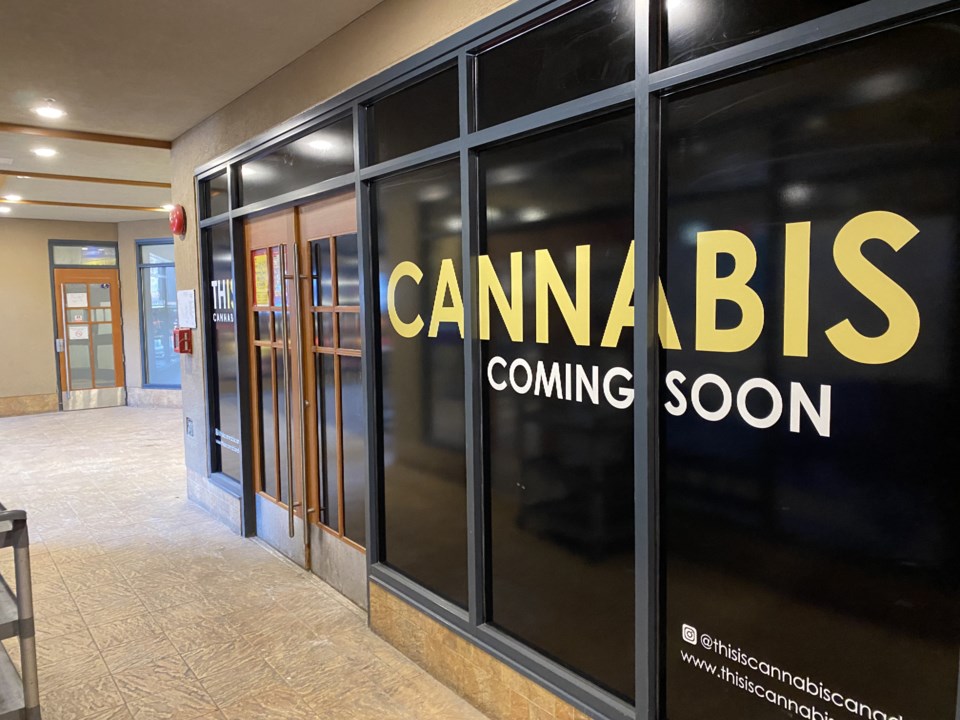The Resort Municipality of Whistler’s (RMOW) meticulous framework for approving cannabis retail has come under scrutiny after a prospective retailer triggered a judicial review of the process in B.C.’s Supreme Court.
Filed in June, the petition contends the RMOW did not adequately follow its own stringent criteria when it approved temporary-use permits (TUP) for four cannabis dispensaries in Whistler this summer.
Petitioner Warren Hamm, owner of The Green Pineapple, which counts cannabis storefronts in Kelowna, Warfield, and Fruitvale, was one of six applicants denied by the municipality. According to court filings, Hamm’s counsel argued the granting of a specific TUP for a dispensary slated for Whistler Village was “procedurally unfair and substantively unreasonable” for several purported reasons.
Firstly, the petition alleges applicant This is Cannabis, with existing retail locations in Chilliwack and Abbotsford, did not follow the application guidelines set out by the RMOW when it applied for a provincial retail licence prior to the local government amending its cannabis bylaws.
“Any application for provincial licences made prior to the RMOW amending its bylaws will be rejected,” the municipality’s Guidelines for Prospective Cannabis Retail Businesses reads.
This is Cannabis, which was approved for a storefront at 4293 Mountain Square, submitted its application to B.C.’s Liquor and Cannabis Regulation Branch on May 10, 2022; the RMOW amended its zoning bylaw regulating cannabis retail on Jan. 10, 2023, according to the filing.
The petition also contends This is Cannabis’ application was not complete at the time it was submitted, contrary to the RMOW’s application form that clearly states: “Incomplete applications will not be accepted.”
The petition also claims This is Cannabis did not include proof of ownership or lease of the Mountain Square retail space by the March 2023 application deadline, contrary to municipal Cannabis Retail Policy G-27, which states that a letter of consent signed by the subject property strata corporation or registered owner authorizing the application and proof of an option for lease or purchase was required.
In May, This is Cannabis co-owner Cody Les, who declined to comment for this story, told Pique they had secured a lease for 4293 Mountain Square close to a year prior and left the commercial space vacant over that span.
Around that time, the RMOW noted 10 applications had been submitted for cannabis storefronts, including one partially incomplete submission. Despite the RMOW’s application materials clearly listing a March 13, 2023 deadline, Mayor Jack Crompton told Pique in May that submissions would be accepted on an ongoing basis.
It was an issue raised by another unsuccessful retail applicant, Pemberton’s Tyler Mosher, at a council meeting this summer. Mosher argued Spiritleaf, which was granted a TUP to operate in Creekside where Mosher also applied, was incomplete at the submission deadline.
“So, incomplete applications, although this was the most robust application process that me or any of my associates in cannabis throughout Canada have seen with respect to retail, it wasn’t followed, and you’re thinking that the recommendation and the process, even though not followed by your policy, is a reasonable recommendation?” Mosher asked elected officials at the July 18 council meeting.
In a statement to Pique, the RMOW stood behind its approval process.
“At the June 20 Regular Council Meeting, Council approved four retail cannabis Temporary Use Permits, including a TUP for Spiritleaf in the Creekside area. Council made our decision based on a review of all the applications, the staff report with recommendations, the criteria set out in the Cannabis Retail Policy and correspondence received from members of the community,” it read. “We are confident in the decisions made through this process and thank everyone who applied. We have no further comment at this time.”
Other prospective retailers also raised issue with the process, arguing the grading criteria and application framework contained significant errors, and that the RMOW should have been more transparent throughout.
“To RMOW staff’s credit, they had come up with detailed evaluation criteria, but we feel that those criteria do not capture our operational track record of having seven licences and our First Nation relationship, and the efforts that have gone into selecting the ideal location based on ‘on the ground’ community needs and community engagement were not considered,” Vikram Sachdeva, founder of Seed & Stone Cannabis, wrote in a June email. “We believe that these are the demonstrated aspects that capture the applicant’s potential to act in the interests of the community once approved rather than just the promises.”
Another applicant, Inspired Cannabis owner Jesse Dhami, in June said he noticed inconsistencies in staff’s dealings with applicants and a lack of transparency around the TUP process.
Hamm’s petition, which he said would be considered by the courts in the spring, highlighted another purported inconsistency in the RMOW’s approval of This is Cannabis’ storefront: its location.
According to the RMOW’s zoning amendment bylaw, a cannabis retail store “shall not be permitted to have frontage on the Village Stroll.”
The petition contends that This is Cannabis’ Mountain Square unit and entrance “can be seen directly from the Village Stroll, including from gathering places near the gondola and from natural areas of congregation, such as the public seating in the square.”
The RMOW took a decidedly cautious approach to approving legal weed, using an extensive, merit-based point system to score applicants’ submissions on a range of criteria that went well beyond provincial and federal regulations. Favour was given to, among other things, providing a living wage and housing to staff, committing to climate leadership, partnering with local First Nations, and pursuing Whistler’s community health and social strategy goals.
More than five years since legalization, only one of Whistler’s four approved cannabis shops, A Little Bud in Function Junction, is currently open for business.
None of the above claims have been proven in court.






